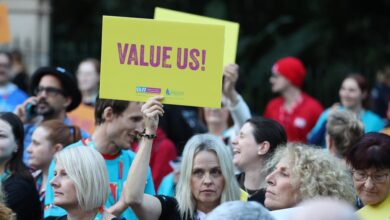Moving to close the workforce gap
A new report is encouraging more Aboriginal and Torres Strait Islander people to take up careers in health.
Building a strong indigenous workforce is imperative to improving health outcomes and the life expectancy of Aboriginal and Torres Strait islander people, with a new report advising the government on how to achieve this released last month.
Prepared by the National Indigenous Health Equality Council (NIHEC), a group of 15 Aboriginal and Torres Strait Islander Health stakeholders, the report presents a series of recommendations aimed at reducing the gap in health workforce participation between indigenous and non-indigenous Australians by 20 per cent in the priority areas of medicine, nursing and allied health within 10 years and by 50 per cent within 20 years.
Launching the report at NIHEC’s Indigenous Health Workforce forum in Adelaide, the Minister for Indigenous Health, Warren Snowdon, said there was great opportunity for Aboriginal and Torres Strait Islander Australians to move away from professions they had traditionally worked in.
“Health is the largest employer in Australia and the sector provides many untapped opportunities for the employment of Aboriginal and Torres Strait Islander people. We know that many indigenous Australians are either nurses or Aboriginal and Torres Strait Islander Health Workers.
“We want to spread the message that there are outstanding opportunities for Aboriginal and Torres Strait Islander people to become health professionals in other areas, such as doctors, nurses or allied health professionals,” he said.
Among the council’s recommendations are:
• Strengthening information sharing among indigenous Australians considering a career in health or currently working in the health sector including information on health career pathways, existing government and other relevant programs, networks and emerging technologies.
• Strengthening engagement and partnership with industry to identify and develop emerging health roles.
• Improving role definitions and structures including multi-disciplinary teams working collaboratively in person-centred care and role redesign to reflect individual and community needs.
• Routine analysis, review and reporting of indigenous health workforce trends over time to monitor progress towards meeting the targets.
• Further research on where the policy interventions should be focussed in relation to the enablers and barriers to education (e.g. the relative importance of cultural inclusive support strategies, strategies to support the diverse circumstances of students, academic competence, socio-economic status, and geography issues) and at which point these factors are most amendable to intervention.
• Research on successful strategies for attracting and retaining indigenous Australians in the health workforce.
The full report can be viewed at www.nihec.gov.au.
Email: [email protected]





